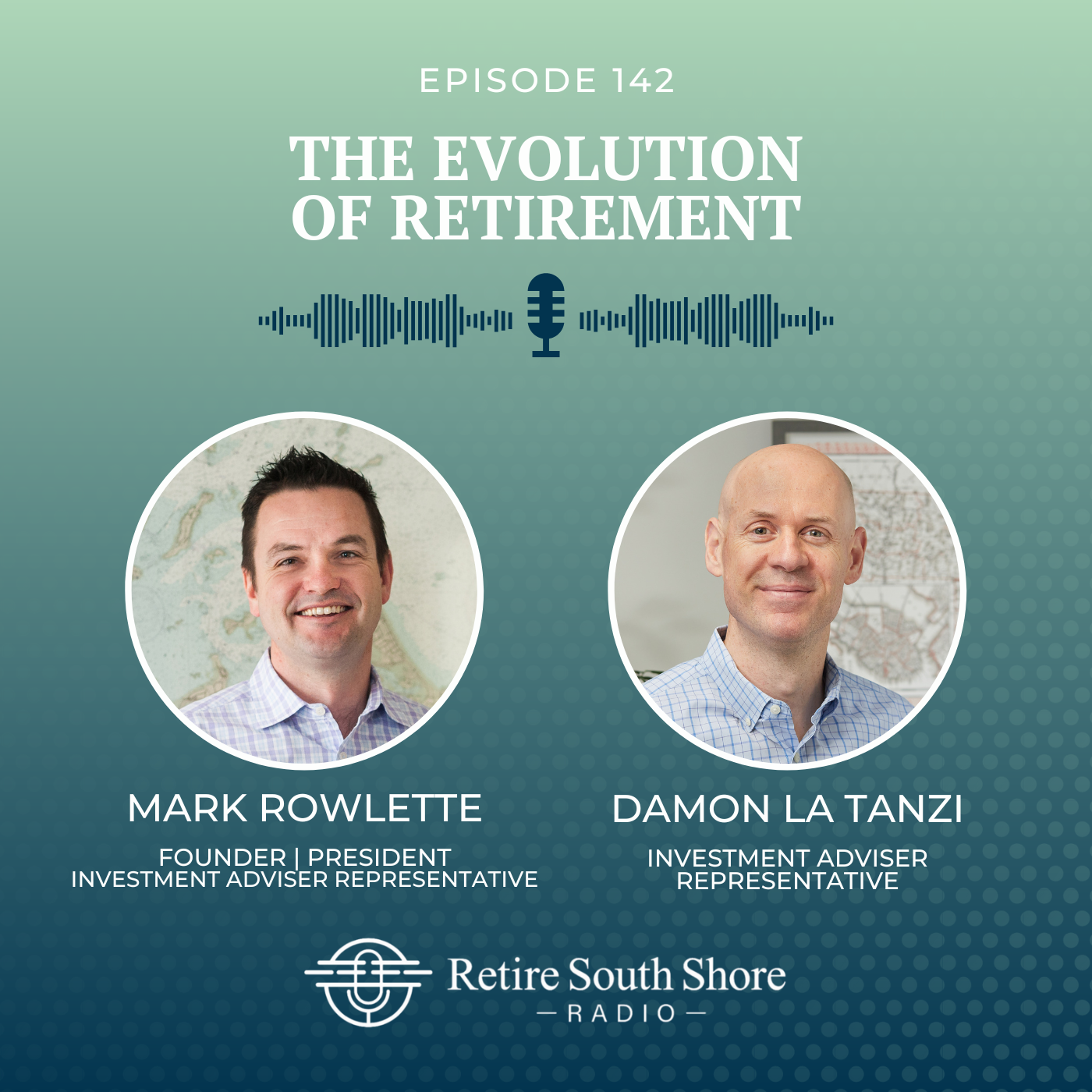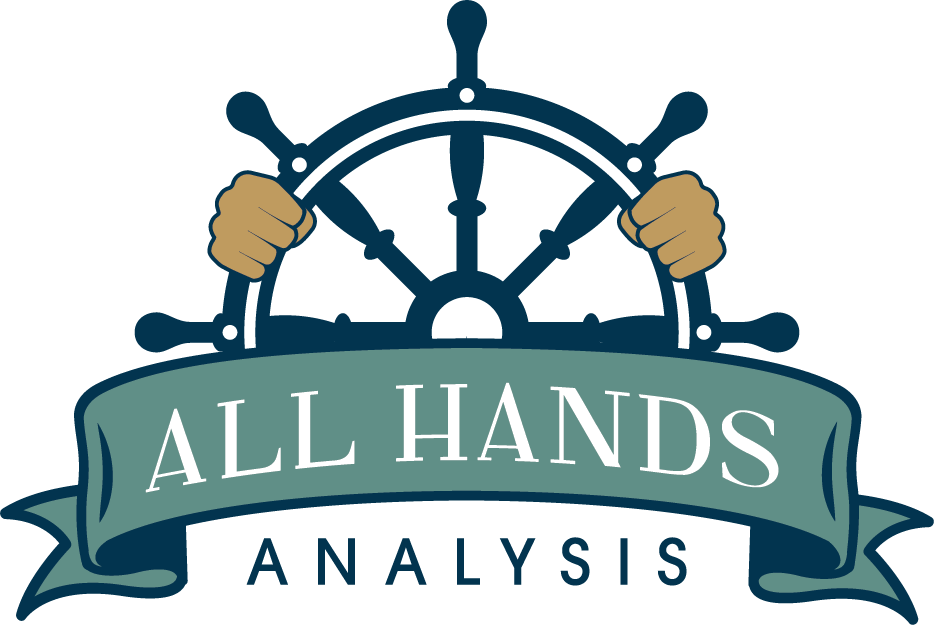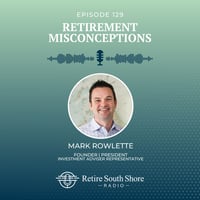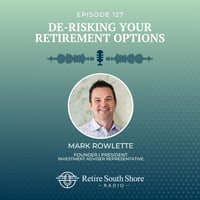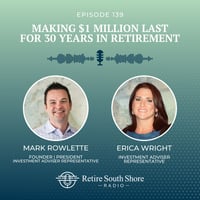142: The Evolution of Retirement
Summary
In this episode, Mark Rowlette and Damon La Tanzi explore the evolution of retirement planning from historical pension reliance to the modern challenges of individual retirement accounts and shifting from saving to spending.
Outline
Segment 1. Introduction
Segment 2. Historical Overview of Retirement
- Mark discusses the evolution of retirement from the early 1900s.
- Originally, a significant number of companies offered pension plans.
- Defined benefit plans (pensions) were common, where the employer bore the investment risk.
Segment 3. Impact of Historical Events
- Wars and the Great Depression strained pension plans and led to the introduction of Social Security.
Segment 4. Social Security Introduction
- The challenges faced by the Social Security system as life expectancy increased dramatically.
- The strain on the system with more people drawing benefits.
Segment 5. Emergence of the 401K
- Damon discusses the invention and popularization of the 401K plan in 1978.
- Shift of responsibility from employers to employees regarding retirement savings.
Segment 6. Differences in Retirement Planning Across Generations
- Mark and Damon compare their own family histories to illustrate varied retirement planning approaches.
Segment 7. Current Challenges and Strategies
- Importance of managing multiple retirement accounts.
- Need for regular monitoring and updating of retirement plans due to the complexities and global nature of investments.
Segment 8. Changes in Pension Plans and Lump Sum Decisions
- How recent interest rate changes have impacted the appeal of lump sum pension withdrawals versus annuity payments.
- The importance of individualized advice in making these critical decisions.
Segment 9. Increased Complexity and Responsibility
- Shift of financial risk and responsibility from employers to employees.
- Increased expectations for lifestyle in retirement requiring more sophisticated planning.
Segment 10. Adapting to Change and Future-Proofing Retirement Plans
- Discussion on the ever-changing nature of retirement plans and the necessity of regular check-ups.
- Importance of personalizing retirement strategies to meet specific needs rather than adopting a one-size-fits-all approach.
Segment 11. Balancing Risks and Ensuring Sustainable Withdrawals
- Strategies to balance risk and ensure sustainable withdrawals during retirement.
- Advice on avoiding common pitfalls when managing one's own retirement funds.
Segment 12. Conclusion
Transcript
Jordan Rich [00:00:05]:
Welcome. This is the Retire South Shore Radio Podcast produced by South Shore Retirement Services, inviting you to get started on the path toward your dream retirement today. Hello, I'm Jordan Rich, joined by Mark Rowlette, the founder and president of South Shore Retirement Services, and financial advisor Damon La Tanzi. Enjoy the episode.
Retirement has evolved like everything else in our lives. And you guys have a pretty interesting take on that.
Mark Rowlette [00:00:30]:
Yeah, I thought, you know, in the weekend, that's in it. Lots of people are talking about the old times, and certainly Lauren's father, who was in the military, talks about the past. And I thought it'd be a good time to chat about retirement and how it's evolved over the generations and how it used to look and now kind of how it looks now, and some of the challenges that people have now that they maybe didn't have before. So in the early 1900s, life expectancy was an awful lot shorter, and now life expectancy is almost twice as long. In 1900, life expectancy was 31. As of 2017, it was more than 70. And now we have clients that are living well beyond 80, 90 years old, and you're trying to help them manage how they can not have to necessarily worry about running out of money when their goal is no longer to roll into retirement and seven to ten years in retirement. And that's-
Mark Rowlette [00:01:23]:
That's not the reality of the real world now, but how it used to look. And the US was pretty much one of the front runners in, um, building out retirement plans for people. And, and it used to be significant amount of companies having pension plans, right. So it was less complicated, quite honestly, because people would work for a company, put money away, the employer would put money away. It started with the railroad, and they would have, when they go into retirement, what's called a defined benefit plan. So they define what the benefit is that you're going to get when you ultimately stop working. People call that a pension plan, and thats exactly what that is. And many companies had those back in the early 1900s or late 1800s, early 1900s. And then things changed a little bit as the economy in the US was dramatically impacted by wars and the Great Depression.
Mark Rowlette [00:02:25]:
So many people were able to not have to work until the point that they couldn't work anymore and they could enjoy themselves using these defined benefit pension plans to give them a stream of income coming out while they were in retirement.
Damon La Tanzi [00:02:40]:
That's right, Mark and folks, if you think about a pension plan, the risk is really on the employer, right? The money is taken out of your paycheck. You don't have a say in it, and then your employer manages that pension fund and they have promised to give you the income. It was a forced saving. So people didn't have to give a lot of thought to, well, gee, am I saving enough money? The pension plan automatically did that and just gave you this stream of income. But all the risk was on the employer to manage the money properly to be able to support the payments. And if theres one constant in retirement planning, gosh, in life in general, its that there are going to be changes and what those changes are and how they happen. Were going to talk about those as we go through the show.
Damon La Tanzi [00:03:19]:
But newsflash, pensions aren't around in the same way that they used to be. So there's really been a big shift mark in who's responsible for their retirement savings.
Mark Rowlette [00:03:29]:
Yeah, I mean, back in the early 1900s after World War 1, Spanish Flu, Wall Street crash, a lot of these companies weren't able to afford to continue to have these pension plans, so they started to fade away. And FDR, when he was president, brought in Social Security in the mid thirties, right? The issue, I think, when they came out with Social Security was, or the interesting part was that that was the kind of the first time that they came out with an official retirement age, right? 65 was pegged as the official retirement age in the mid thirties. The irony of that was that at that time, if the official retirement age was 65, life expectancy was 58. Right. So people were striving for this official retirement age, and that was seven years beyond what you were expected to live. So the concept from a government standpoint was brilliant, right? I mean, let's have everyone put money into these things for retirement, but we're not expecting any of these people or most of these people to get to that point.
Mark Rowlette [00:04:30]:
That's obviously dramatically changed now. And that has, you know, Damon and I gave a presentation last week where we were talking about the strain on Social Security now. There wasn't that strain back before, you know, before, you know, the fifties and sixties when they first came out with Social Security, there was more people putting into it than we're obviously taking out of it. That has dramatically changed over the course of the last few decades.
Jordan Rich [00:04:56]:
As we discuss all of these issues, it's important to know that knowledge is power. And you can find out more directly about your own situation by visiting retiresouthshore.com and consider that 15 minutes no obligation strategy call, a terrific tool. You can do it from the comfort of your home and it's very, very easy. Go to retiresouthshore.com and on the grid there you can make an appointment for that phone call or you can call the office, 781-836-4214 to set it up. 781-836-4214 so we're talking, guys, about the major shifts in demographics that have, you know, obviously been present, which means the Social Security system is strained. But then let's continue with the history and take a look at what happened in the 1970s, a major sea change in terms of retirement.
Damon La Tanzi [00:05:42]:
A great point, Jordan. The 401K, which is, I think to most of us, the primary retirement savings vehicle was invented, came into existence in 1978. And if you ask people in the early eighties, many of them still had never heard of 401ks. But flash forward to today and the 401K is where, I don't know, 90 plus percent of retirees are saving their money if they work for a company.
Mark Rowlette [00:06:04]:
Yeah, I think its interesting. Damon's and my upbringing and the perspective around retirement is vastly different. I mean, I grew up in Ireland and my dad, as you know, Jordan worked at Guinness for his whole career, came out into retirement, had a pension plan, had the Irish equivalent of Social Security, and was able to live on that fixed income. But the biggest thing that he was able to do is not have to make massive decisions as to where to put his money and how to invest the money. Whereas Damon's dad came out of college and started his own business, I think almost immediately in the legal profession. So he had to build it himself. And that creates a lot of challenges for everybody. We're going to talk about some of the challenges that happen, but the reality of having a 401k is if you manage it correctly and if you have a proper plan in place and you know how you're going to take money out, when you're going to take money out and where you're going to take it from, then having the control over your own money makes people more comfortable, makes people in the driver's seat.
Mark Rowlette [00:07:04]:
And people want to have control, or at least they want to feel like they're in charge of their own financial future. That can come with its challenges, but it also comes with massive amounts of benefits because of all of the options that are available to people right now. Yeah.
Damon La Tanzi [00:07:18]:
So then as 401ks were coming out, pensions are starting to fade away. Employers were much happier to put a small matching contribution into a 401k versus having to worry about managing a pension plan. So employers were thrilled to put the, the onus onto the workers, so to speak. And those 1st 401ks really didn't look a lot like the ones we have today. You might have had three or four or five investment options at most. People had no idea what they were picking. There wasn't this menu of choices inside of them. So it was a simpler time, if you will, and people put some money in and picked the choice and basically set it and forget it.
Damon La Tanzi [00:07:51]:
And that was that.
Jordan Rich [00:07:52]:
The evolution since then. We'll talk about this in the next segment of the program. So many changes, which is exactly why I would rely on an organization like South Shore Retirement Services. And I do because I need to have that up to the minute information to understand all these processes and how they move. Mark.
Mark Rowlette [00:08:10]:
Yeah, I mean, one of the biggest things that we see when we meet with folks is not so much that they haven't built up enough money, because many people that we sit down with have more than enough saved in their nest egg. It's really just knowing how to continuously change or monitor the existing investments. They have to make sure that they are correct and they're right for the situation that they're in in life. And listen, 401ks are great. Don't get me wrong. I mean, I have a 401k. Everyone here in the company has a idea of having all of these different investment choices is great. Having control over your money is great.
Mark Rowlette [00:08:45]:
Being responsible for your money is something that everyone should have or should be responsible for their money. That gets a little bit nerve-wracking for folks because they're like, I just don't know where to put the money and how to position the money. So our all-hands-analysis approach kind of methodically maps out through income wealth management and the tax strategy side of things, which is all related to 401k plans. It's not just about how much you put in, it's about when you should take it out, navigating your tax bands to make sure that you're minimizing your lifetime tax bill coming out on the other end. And that's really the kind of the magic around marrying both how the money grows from an investment perspective and how you distribute it from a tax perspective, that you can actually make money in both of those situations.
Damon La Tanzi [00:09:32]:
That's right, Mark. And if we rewind in our brains into times past, most people had one job for their whole career. The old cliche of, I worked in the factory and I retired at 58 and took a pension and died a few years later. I know, it sounds depressing, and it really wasn't exactly like that, but you had one employer. Fast forward to today, people have had five or six employers. They've got a bunch of 401ks, they've got IRAs. You got all this stuff, we call it the financial junk drawer, but they have all these accounts all over the place. And part of the challenge that people have is how do I get that stuff in order to make sense of it so I can have a plan to retire and not run out of money.
Jordan Rich [00:10:06]:
You would ask people in 1930 if you had a pension, you'd get most hands raised. These days, you'd have very few hands raised.
Mark Rowlette [00:10:14]:
Yeah, 30 or 40 years ago, I think something around 90% to 95% of companies, including private sector companies, had pension plans. Nowadays, especially in the private sector, less than 5% of companies have pension plans that are active. So the 401k the 403b, you know, save the money yourself. You're kind of responsible for your own destiny is kind of the mainstream theme that happens when people are saving money for retirement. And like Damon said before the break, it isn't a situation where every person leaves college or leaves high school, starts a job, and retires out of that same job. People have multiple careers throughout, and we sit with people, and firstly, they have multiple accounts with different employers that they've had over the years. And we try to assess and organize and take stock of their stocks, if you will, and make sure that things are working correctly. Because the problem that we see and the challenge that people have is it takes a lot more monitoring now because of the world, because globalization has made it that the world is so small that people are investing all over the globe. And if you make some mistakes in the early years, it can actually have a detrimental effect on the outcome of your ultimate retirement.
Damon La Tanzi [00:11:29]:
Thats true, Mark. We talk a lot about that shift from growing your money and saving and socking it away every week out of your paycheck to suddenly you make this transition into retirement and like, boom. I now have to shift my whole mindset from saving to spending. And thats a big psychological shift for people. We see a lot of anxiety around that, especially if they don't feel like they have a plan. I mean, I think one of the benefits, mark, of working with us, not to shamelessly plug ourselves, is that sense of comfort that we can give people as they make that transition, or if after they've made that transition, if they've already retired when they come to us.
Mark Rowlette [00:12:01]:
Yeah, I think, you know, having the experience of having done this for 25 plus years each of us being able to share stories and knowledge and wisdom of other people who've gone through the same situation time and time again. Because there's literally tens of thousands of baby boomers, retiring on a weekly basis is giving people power to make the right decisions at the right time and like having that conversation around. Listen, the first ten years of your retirement is going to look different to the next ten years of your retirement. And don't be so panicked about, hey, I need $85,000 a year to live on today, and I'm going to have to continue to grow it for inflation. That's not wrong. But what people sometimes don't see is, well, what are you actually going to be spending money on? And the first 7-10 years, you're going to go on trips, you're going to travel, next 7 to 10 years, probably get into a groove and not do as many things, last 7 to 10 years. If that's how long you're in retirement, maybe you're having to spend a little bit more money on medical expenses or not necessarily the fun stuff, but at the same time, having watched clients go through retirement for a couple of decades now, I can see the consistent theme that people get into a groove and don't necessarily spend as much money, but you still want to make sure that the way that you've positioned your money isn't the classic old school way that maybe doesn't work as well anymore. Right.
Mark Rowlette [00:13:26]:
Having your money position where you're taking risk with everything that you have, whether it's a lot of risk or a little bit of risk. Risk in distribution is kind of the worst possible thing that you could be doing when you're distributing money out of these accounts, because you don't want to take money out of an account that has lost value, because now you've realized that loss.
Damon La Tanzi [00:13:45]:
I think that's a good point. What's worked in the past doesn't always work in the future, right? If I think of my grandfather, he was an educator and a football coach and worked for the state for his whole career or worked for towns for his whole career, a pension. And when he retired back in the eighties, he could like ladder out CDs. Mark, you know, CDs were 14%, and when they came due, you just re-up the CDs, all these CD ladders. And I contrast that with my dad, who was self employed, had to contribute to a Keough, which was even before 401ks, then a 401k. Right. He was responsible for doing that. Interest rates were coming down, down, down.
Damon La Tanzi [00:14:18]:
So that whole idea of I'll just stick it at 14% in the CD and get my pension. I mean, those days are gone, probably forever. I mean, maybe they'll come back, but I don't see that happening. But the point is, things are always changing. And whatever your plan was three years ago, that just might not be your plan, or maybe it shouldn't be your plan now. You've got to have a checkup on that stuff.
Mark Rowlette [00:14:38]:
Yeah. And I think even over the last 10 or 15 years, retirement continues to evolve. I mean, people continue to live longer. Its more complicated as to what to do. The menu of options and the things that you could put your money in is almost endless now. And the conversations that we have with people day in and day out is, hey, my friend is doing this and I think I would do that. Well, let's look at your specific situation. Let's look at what makes sense for you and your family, not just, and I realized I'm saying this as we're on the radio, but not just having a one size fits all, because one size does not fit all.
Mark Rowlette [00:15:14]:
So giving advice to the masses is really difficult. And taking advice just based on what somebody else is doing may work for you, but it may not work for you.
Jordan Rich [00:15:23]:
We talked about pensions and the fact that so many of them have gone away, but some are still in play. Very much so. And you have a lot of clients who happen to be nurses, public utilities employees. Let's just take a moment to address those folks. Mark.
Mark Rowlette [00:15:35]:
Yeah, there's still a lot of people out there that are working that have pension plans and choices to make when those pensions are coming to fruition, when they're rolling into retirement. And, you know, maybe two years ago, three years ago, there was a huge argument to be had to say, well, don't take the annuity payment, take the lump sum, because you can recreate a better income stream and have far more control over your money by rolling that money out. Well, that world has kind of changed, and it'll probably change again going forward. Part of what's gone on over the last couple of years is interest rates have come up dramatically. Then when interest rates go up, the amount of money that a company, if they're offering you a lump sum option on your pension, would have to give you to create the income that the annuity was going to give you from the employer goes down. Right. The bigger the interest rate, the less money they have to give you to create the income. So those lump sums have come down dramatically.
Mark Rowlette [00:16:30]:
And maybe it doesn't make sense to take a lump sum pension. Maybe now it makes sense to take an annuity payment, but the only way to know whether you should do that or not is to sit down and do the mathematics on it, right? Pick up the telephone, call your advisor, call, south Shore Retirement Services, set up a 15 minutes strategy call and look at it from the perspective of what makes sense now as opposed to what you thought you were going to do because you started preparing for this two or three years ago, because the world has changed even in that short period of time.
Damon La Tanzi [00:17:00]:
I think, Mark, if you think back 30 years ago, the pension was, if not all, the vast majority of the income that an individual or a family needed. Fast forward to today. And for most of our clients, even if they have a pension and social, it's often not enough income to meet all their expenses or to meet all the things they want to do once they retire and they want to travel and spend time with grandkids. These things, the pension plus the social, it's great, but it's still not enough because of inflation, just because of how much money they spend. So you have to have a plan around the rest of your assets to supplement the pension, to supplement Social Security just because those just probably aren't going to be enough to get you to where you want to be.
Mark Rowlette [00:17:38]:
Yeah, I mean, one of the biggest things that we've been kind of addressing throughout this whole show is that the risk and the responsibility has completely shifted from the employer to the employee. And at the same time, people's expectations with things that they want in life have continued to grow. Right. I mean, probably back in the thirties, I wouldn't think many people are thinking, well, I'm going to go to Italy for three weeks in retirement or I'm going to go down to Florida and live there for three months in the winter. So people's needs and wants, and there's nothing wrong with that have shifted as well. And at the same time, the stress level of getting into retirement or working a job right before you retire, generally people's stress level is a lot higher. Try and make these huge decisions as to what to do, when to do, how to do it and who to work with is really overwhelming for people as they're getting towards a period of time when they're going to be overwhelmed anyway, because now they're thinking about, well, I'm no longer going to be doing this job for a living and what's my next step and what am I going to do with the rest of my life? So working with people that A, you trust and B, you know, that they're doing the right thing for you, and they understand what, what you should be addressing and how you should be attacking. That takes that stress or part of that stress off the table.
Mark Rowlette [00:18:59]:
And I think Damon says it to clients day in and day out. Making huge decisions during a stressful time in your life can be not necessarily the right way to go. So you don't want to make a huge decision that you cannot reverse and you cannot go back, especially if you're one of these. We have a lot of utility workers as clients. We have a lot of nurses as clients, pension decisions. Once you've made it, you can't unmake that pension decision. So sitting and talking to professionals helps you analyze what you should do and what you shouldn't do.
Damon La Tanzi [00:19:31]:
You know, Mark, it's funny. You think about the way things used to be, and becoming a millionaire was the goal. That was the number. If I got to a million dollars, I had made it and I would be set for life. And kind of fast forward to today's environment. And being a millionaire is definitely not a guarantee that you'll have enough money. And this idea of the 4% rule, hey, I can take 4% of my portfolio. If I have a million, I'll take 40 grand a year.
Damon La Tanzi [00:19:56]:
I'll live off of that. And everything is copacetic. Hey, maybe in today's day and age, with fixed interest, you can get 4% pretty much in a money market now, but that's not going to last. Rates will come down. And that, quote, "4% rule" is not going to preserve your principle, right? So what works at a moment in time or what worked in the past? Again, we hit this theme a lot is not a guarantee to work next year or the year after or five years from now. And being a millionaire, hey, that's great if you're there, but in our neck of the woods, in our part of the country here, that's probably not enough to get you to where you need to be, at least for some people out there.
Jordan Rich [00:20:28]:
Thank you for subscribing and downloading the retire South Shore radio podcast. Feel free to leave a review and a rating, and tell your friends about us for much more. Visit retiresouthshore.com that's retiresouthshore.com. Discover how South Shore Retirement Services helps individuals and their families achieve their ideal retirements.
Disclosure [00:22:33]:
Investment advisory products and services made available through AEwealth Management, LLC, a registered investment advisor. Insurance products are offered through the insurance business Roulette and Associates, LLC DBA South Shore Retirement Roulette and Associates LLC DBA South Shore Retirement Services is also an investment advisory practice that offers products and services through AEwealth Management, a registered investment advisor. AEWM does not offer insurance products. The insurance products offered by Rowlette and Associates, LLC DBA South Shore retirement services are not subject to investment advisor requirements. Investing involves risk, including the potential loss of principal. Any references to protection, safety, or lifetime income generally refer to fixed insurance products, never securities or investments. Insurance guarantees are backed by the financial strength and claims paying abilities of the issuing carrier. This podcast is intended for informational purposes only.
Disclosure [00:21:55]:
It is not intended to be used as the sole basis for financial decisions, nor should it be construed as a bytes designed to meet the particular needs of an individual's situation. Mark Rowlette and Associates, LLC DBA South Shore Retirement Services is not permitted to offer and no statement made during this show shall constitute tax or legal advice. Our firm is not affiliated with or endorsed by the US government or any governmental agency. The information and opinions contained herein provided by 3rd parties have been obtained from sources believed to be reliable, but accuracy and completeness cannot be guaranteed by Mark Rowlette and Associates, LLC DBA South Shore Retirement Services.

